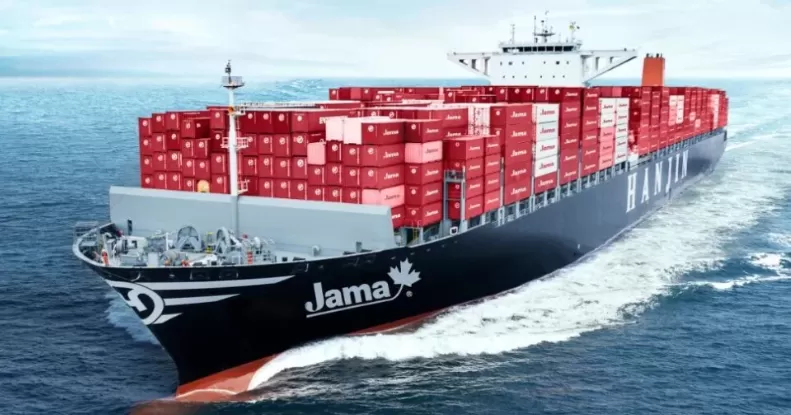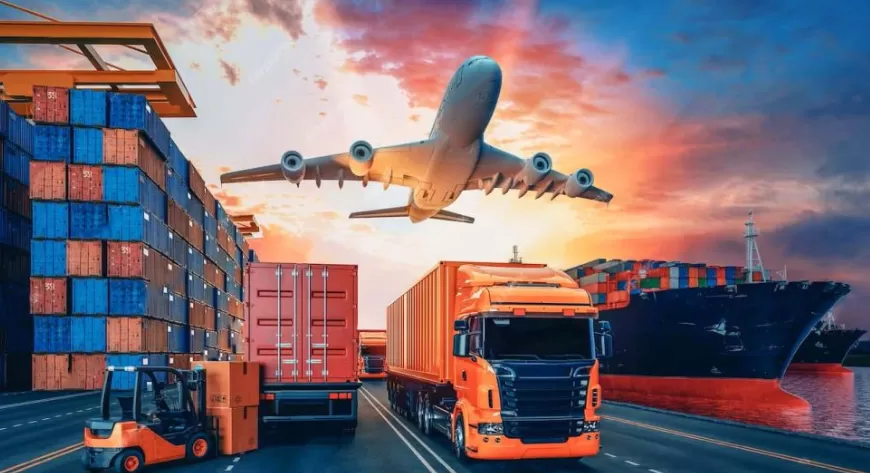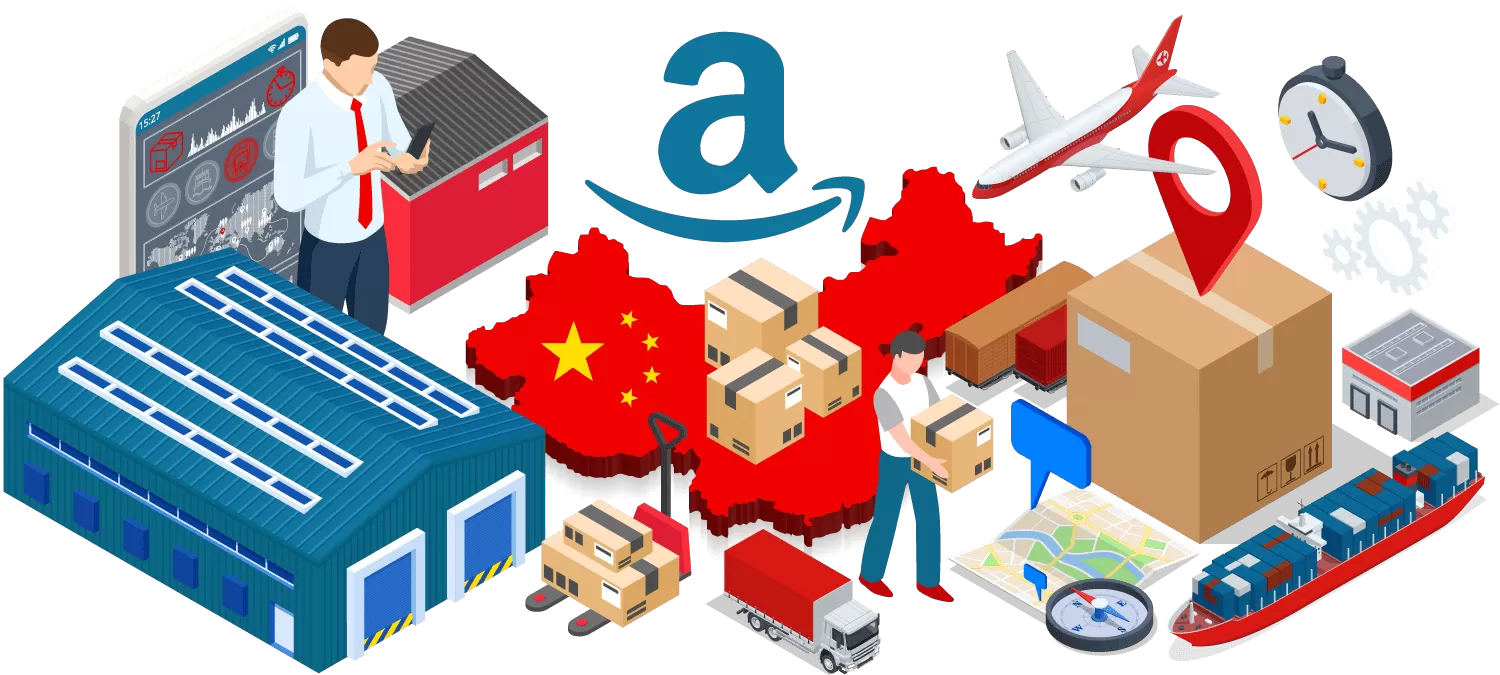Shipping from China to Liverpool isn't just about moving goods; it's about strategically supplying one of the UK's most critical economic hubs. Whether you're an e-commerce seller feeding consumer demand in the North West or a B2B importer supporting industrial supply chains, choosing the right logistics partner for the China-Liverpool route is paramount. This guide cuts through the generic advice to deliver a focused, data-driven playbook. We'll delve into the specifics of the Port of Liverpool, compare all shipping modes with real numbers, and demystify the post-Brexit customs landscape, empowering you to make informed decisions that save time and reduce costs.
Why Liverpool is a Strategic Gateway for Your Imports from China
While southern ports like Southampton get much of the attention, savvy logistics managers are leveraging Liverpool's unique advantages.
Geographic & Economic Efficiency: Positioned on the UK's North West coast, Liverpool offers unparalleled access to major distribution hubs in Manchester, Leeds, and the Midlands. Routing your containers through Liverpool, as opposed to a southern port, can save 24-48 hours and significant expense on final trucking leg. For time-sensitive or cost-conscious shipments, this is a critical calculation.
The Liverpool2 Deep-Water Terminal: This modern facility can accommodate the world's largest container vessels (14,000+ TEUs) directly from Asian hubs. This means fewer intermediate transshipments, which translates to reduced risk of damage and faster overall transit times.
Direct Service Frequency: Major shipping alliances provide regular, direct services from key Chinese ports like Yantian and Ningbo, ensuring consistent and reliable scheduling.
The Bottom Line: If your supply chain serves the northern UK or you seek to de-risk your logistics, Liverpool is not just an alternative; it is a strategically superior choice.
Are you ready?
Get real-time quotes for Liverpool
Get Quotes
Comprehensive Shipping Reference Rates: China to Port of Liverpool, UK
| Shipping Method |
Cargo Specification (Example) |
Estimated Transit Time |
Reference Rate (Est.) |
Pricing Unit |
Best Suited For |
| International Express |
10 kg |
3 - 6 days |
¥1,200 - ¥1,800 / $170 - $250 |
Total Cost |
Documents, samples, most urgent small parcels. |
| International Express |
110 kg |
4 - 6 days |
$1437-$1916 |
Total Cost |
Larger volume of urgent samples or lightweight/bulky goods. |
| Air Freight |
100 kg |
5 - 8 days |
¥28.5 / $4.0 |
Per Kilogram |
High-value goods, time-sensitive cargo, medium-sized shipment. |
| Air Freight |
200 kg |
7 - 12 days |
¥22.0 / $3.1 |
Per Kilogram |
Bulk air cargo, offering better cost-efficiency per unit. |
| Sea Freight LCL (Less-than-Container Load) |
1 - 10 Cubic Meters (CBM) |
25 - 40 days |
$50 - $120 |
Per CBM |
Shipments too small for a full container, most cost-sensitive. |
| Sea Freight FCL (Full Container Load) |
20 ft Container (Standard) |
25 - 40 days |
$1,850 - $2,500 |
Per Container |
High volume cargo, enough to fill a standard 20ft container. |
| Sea Freight FCL |
40 ft Container (Standard) |
25 - 40 days |
$2,000 - $4,000 |
Per Container |
Very high volume cargo, maximizing space and tonnage. |
| Sea Freight FCL |
40 ft High Cube (HQ) |
25 - 40 days |
$2,250 |
Per Container |
Light/bulky goods that require extra vertical space. |
| Sea Freight FCL |
45 ft Container (Largest) |
25 - 40 days |
$2,535 |
Per Container |
For maximum cargo capacity and container utilization. |
.
Shipping Methods Decoded: A Data-Driven Comparison for Liverpool
We move past theory to practical, data-backed insights for this specific route.
Air Freight from China to Liverpool
Routes & Logistics: Air cargo from China to the Liverpool region primarily flows through major gateways like Shanghai (PVG), Guangzhou (CAN), and Shenzhen (SZX). Flights may be direct or connect through European hubs such as Amsterdam (AMS) or Frankfurt (FRA), ultimately landing at Manchester Airport (MAN), the closest major cargo airport. From there, your freight forwarder arranges the final trucking leg to Liverpool.
Realistic Timeline: Door-to-door transit typically takes 5-10 days. This includes 1 day for collection in China, 1-3 days for air transit and transfers, 1-2 days for UK customs clearance, and 1-2 days for final road delivery.
Cost Structure: This is the premium option. Expect rates between $4.50 - $7.00 per kilogram, subject to fuel surcharges and market volatility.
Strategic Use Case: Ideal for high-value electronics, urgent spare parts, or sample shipments where the cost of air transport is outweighed by the need for speed.
Key Consideration: Charges are based on volumetric weight (LxWxH in cm / 6000). Efficient packaging is crucial to avoid paying for air.
Sea Freight from China to Liverpool
Sea freight is the most cost-effective solution for the vast majority of cargo, but understanding the nuances between service types is essential.
FCL (Full Container Load): Maximizing Control and Security
Routes & Transit Times: Direct services sail from key Chinese ports to the Port of Liverpool. Transit times are route-dependent:
Yantian to Liverpool: Approximately 35-40 days (fastest direct service).
Shanghai/Ningbo to Liverpool: Approximately 40-45 days.
Qingdao/Xiamen to Liverpool: 45-50 days (may involve transshipment).
Service Models:
Port-to-Port: You manage and pay for the movement of goods to the Chinese port and from Liverpool port to your final warehouse. This offers cost control but requires significant logistical expertise on your part.
Door-to-Door: Your freight forwarder manages the entire process, from collection at your supplier's door in China to delivery at your warehouse in Liverpool. This hands-off approach provides a single point of responsibility and is highly recommended for most importers.
LCL (Less than Container Load): Flexibility for Smaller Volumes
How It Works: Your goods are consolidated with other shippers' cargo into a single container. Upon arrival in Liverpool, the container is deconsolidated at a warehouse, and your shipment is delivered.
Timeline: Adds roughly 5-7 days to FCL times for the consolidation/deconsolidation process. Total transit is typically 40-55 days.
Break-Even Point: LCL is cost-effective for shipments under 15-18 CBM. Beyond this volume, FCL often becomes more economical.
Sea-Air Hybrid & Rail Freight: Niche Alternatives
Sea-Air: Goods are shipped by sea to a hub like Dubai, then flown to the UK. This can be a cost-time compromise for moderately urgent, medium-value goods, but is less common for Liverpool-specific routing.
Rail Freight: An option for inland Chinese regions. Trains from cities like Xi'an reach Europe in ~18 days, followed by trucking to the UK. It offers a middle ground between sea and air but has limited capacity and schedule flexibility.
Sea Trucking & Sea-Air: Tailored Solutions for Amazon FBA Sellers
For e-commerce, the service level is as important as the mode itself.
Sea Trucking (Sea-Truck): This is the gold standard for Amazon FBA shipments. Containers are shipped to the UK (optimally via Liverpool for northern destinations) and then transported via scheduled trucking services to fulfillment centers like MAN4 (Manchester).
Advantage: Excellent balance of cost and control for palletized goods.
Requirement: Strict adherence to Amazon's pallet standards (UK standard 1200x1000mm) is mandatory and should be verified by your forwarder before shipment.
The Step-by-Step Shipping Process from China to Liverpool
Clarity eliminates cost and delay. Here is the journey of a typical door-to-door FCL shipment.
Consultation & Booking: You provide cargo details. We recommend the optimal routing and service (e.g., FCL Liverpool direct vs. Sea-Truck to MAN4).
Cargo Collection & Origin Handling: We coordinate trucking from your supplier in China to the port. For FBA shipments, we ensure Amazon labels and palletization standards are met.
Export Customs Clearance: Our China team handles all export declarations.
Ocean Transport & Vessel Tracking: Your container is loaded onto a vessel bound for the Port of Liverpool. You receive real-time tracking details.
Arrival at Port of Liverpool & Discharge: The vessel berths at Liverpool2, and containers are unloaded.
UK Import Customs Clearance: Our licensed UK brokers submit import declarations, calculate, and pay duties and VAT under the new post-Brexit rules.
Final Mile Delivery: Once cleared, goods are loaded onto a truck for final delivery to your RDC or Amazon FBA warehouse.
4 Mastering Post-Brexit Customs Clearance at the Port of Liverpool
Brexit changed everything. Proper customs clearance is no longer optional; it's the most critical link in the chain to avoid severe delays and penalties.
Key Requirements for a Smooth Clearance in Liverpool:
EORI Number: You must have a UK EORI number starting with GB.
Accurate Commercial Documents: A correct commercial invoice, packing list, and bill of lading/air waybill are non-negotiable.
Proof of Origin: This determines the tariff rate. A Certificate of Origin may be required to claim preferential rates under agreements like UK-China.
HS Codes: The correct 10-digit UK HS code for your goods is essential for determining duty and VAT rates.
How We Simplify This for You: As your freight forwarder, we manage the entire customs process. We audit your documents for accuracy, use our software to submit declarations directly to HMRC, and provide you with a clear breakdown of all duties and VAT payable before your goods arrive. This proactive approach prevents costly hold-ups at the Port of Liverpool.
freight forwarding
Get real-time quotes for Liverpool
Get Quotes
5 Key Factors in Choosing Your China-Liverpool Freight Partner
Your choice of forwarder can make or break your supply chain. Look for these five attributes:
Direct Experience with the Route: Do they have a track record of shipping to the Port of Liverpool specifically? They should understand its schedules, terminal procedures, and local carrier networks.
Transparent, All-Inclusive Pricing: Beware of low-ball quotes. The best providers offer detailed breakdowns that include all surcharges (BAF, CAF), port fees, and handling costs upfront.
Robust Customs Brokerage: Don't assume all forwarders are customs experts. Confirm they have licensed UK brokers who specialise in post-Brexit imports from China.
Proactive Communication & Tracking: You should have a dedicated contact and access to a real-time tracking portal, receiving updates before you even have to ask.
Value-Added Services: Can they handle Amazon FBA requirements, warehousing, cargo insurance, and labelling? A partner that offers more can grow with your business.
Case Study: Streamlining Supply for a Liverpool-Based E-Commerce Brand
The Client: A fast-growing online retailer of home goods, based in Liverpool.
The Challenge: Their previous forwarder shipped via Southern UK ports, leading to inconsistent trucking schedules, higher inland costs, and delays in getting stock to their fulfilment centre.
Our Solution: We redesigned their supply chain around direct FCL shipments from Yantian to the Port of Liverpool, coupled with our door-to-door service. We managed everything, including customs clearance.
The Result: A 15% reduction in total landed costs, a 5-day improvement in overall lead time, and complete visibility from factory to doorstep. The client now has a predictable, reliable pipeline.
Frequently Asked Questions (FAQs)
Q1: What happens if my goods are damaged upon arrival in Liverpool? What is the claims process?
A: Firstly, note any damage on the cargo receipt before signing. Then, inform us immediately. The process depends on your insurance coverage. If you purchased cargo insurance through us, we will guide you through filing a claim, which requires supporting documents like photos and a survey report. If you relied on the carrier's limited liability, the process is more complex and offers minimal compensation. We always recommend comprehensive insurance for full protection.
Q2: Can I ship personal effects or used household goods to Liverpool from China?
A: Yes, but the process differs from commercial shipments. Used goods often require more rigorous customs inspection. You'll need a detailed inventory list and may need to prove ownership and that the items are for personal use (e.g., a visa or work permit). Duties and VAT still apply based on the item's value. We advise discussing this with us well in advance to ensure proper documentation.
Q3: Are there any goods restricted from import into the UK through the Port of Liverpool that I should be aware of?
A: Beyond common restricted items, specific regulations apply to goods like animal products, plants, certain chemicals, and medications. For example, importing meat or dairy from outside the EU is highly restricted. Items like wireless equipment must meet UK conformity standards. It's crucial to declare your goods accurately so we can advise on any special licenses or prohibitions.
Q4: How do you calculate the volumetric weight for air freight shipments, and why is it important?
A: Airfreight charges are based on volumetric weight (the space your cargo occupies) rather than its actual weight. The formula is: (Length x Width x Height in cm) / 6000. The carrier will charge based on whichever is greater: the actual weight or the volumetric weight. This is why packing efficiently is critical for cost-effective air shipments.
Q5: What is the difference between a HS Code and a UK TARIC code?
A: An HS (Harmonized System) Code is a 6-digit global standard for classifying products. The UK TARIC code is a 10-digit code that starts with the HS code but adds 4 more digits for UK-specific declarations. These extra digits provide information on applicable VAT, duties, and any licensing requirements. Using the correct full TARIC code is essential for smooth UK customs clearance.
Q6: Can I change the final destination of my shipment after it has already left China? For example, from Liverpool to Glasgow?
A: This is possible but can be complex and expensive. It involves issuing a new Bill of Lading (a process called 'Switch BL') and rerouting the container, which incurs additional freight charges, port fees, and administrative costs. While we can facilitate these changes, it's always best to finalize the destination before departure to avoid complications and extra costs.
Q7: What is an ATA Carnet, and would my shipment to Liverpool require one?
A: An ATA Carnet is a temporary admission document that allows you to import goods temporarily without paying duties and taxes. It's only relevant for items like professional equipment, trade show exhibits, or samples that will be re-exported within a specific time frame. If your goods are for permanent import and sale, a Carnet is not required.
Q8: What are the implications of "Incoterms" like FOB Shanghai or CIF Liverpool on my shipment?
A: Incoterms define the responsibilities and risks between the buyer and seller. FOB (Free on Board) Shanghai means your responsibility (and risk) starts once the goods are loaded on the ship in Shanghai. CIF (Cost, Insurance & Freight) Liverpool means the seller arranges and pays for the main carriage and insurance to Liverpool, but risk still transfers to you at the origin port. We strongly recommend FOB terms for importers, as it gives you greater control over freight costs and carrier selection.
Q9: Is there a Minimum Order Quantity (MOQ) or volume requirement to ship with you?
A: We cater to businesses of all sizes. There is no strict MOQ. We provide quotes and services for everything from small package air shipments to full container loads. Our LCL (Less than Container Load) service is specifically designed for smaller volume shipments, making it economical for SMEs to import without needing to fill a whole container.
Conclusion: Your Partner on the China-Liverpool Route
Shipping to Liverpool presents a fantastic opportunity to optimise your UK supply chain. The key lies in selecting a logistics partner with the specific expertise, transparent processes, and local knowledge to navigate the route efficiently.
Ready to streamline your shipments from China to Liverpool?
Get a Free, Detailed Quote: Click here to receive a personalised quote in less than 24 hours.
Speak with a Route Expert: Book a free 15-minute consultation to discuss your specific needs and build a tailored logistics strategy.
Exploring Other Major Logistics Routes?
While this guide focuses on shipping from China to Liverpool, we also provide detailed, actionable guides for other major global destinations. Explore the options below to optimize your entire supply chain.
United States:
Comprehensive US shipping guide with FBA specifics
European Markets:
Best freight forwarders for European FBA
Key US Hubs:
New York: Shipping From China to New York — Costs, Times & Best Routes
Los Angeles: Shipping from China to Los Angeles—Best FBA Shipping Rates and Times
Chicago: How Long Does It Take to Ship from China to Chicago? – The 2025 Comprehensive Guide
UK Specific:
Shipping to Birmingham for affordable FBA options
Logistics Models:
Understand 1PL, 2PL, 3PL, 4PL differences
Compare All Options
Each destination offers unique advantages depending on your cargo type, volume, and final distribution needs. Use our detailed guides for Baltimore, Atlanta, and other major logistics hubs to develop an optimal global shipping strategy.

 EN
EN
 FR
FR
 ES
ES
 JA
JA
 PT
PT
 RU
RU
 AR
AR







